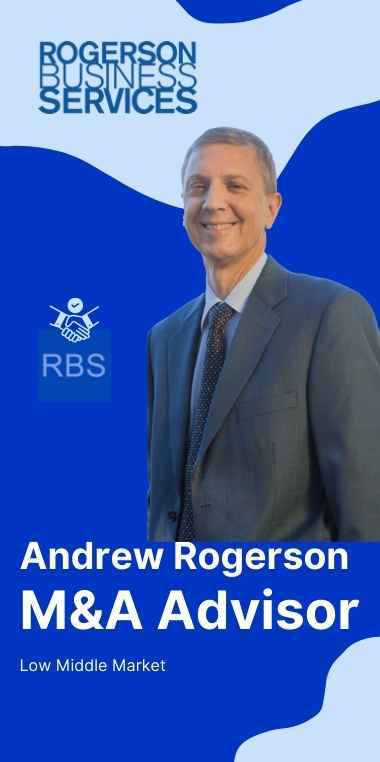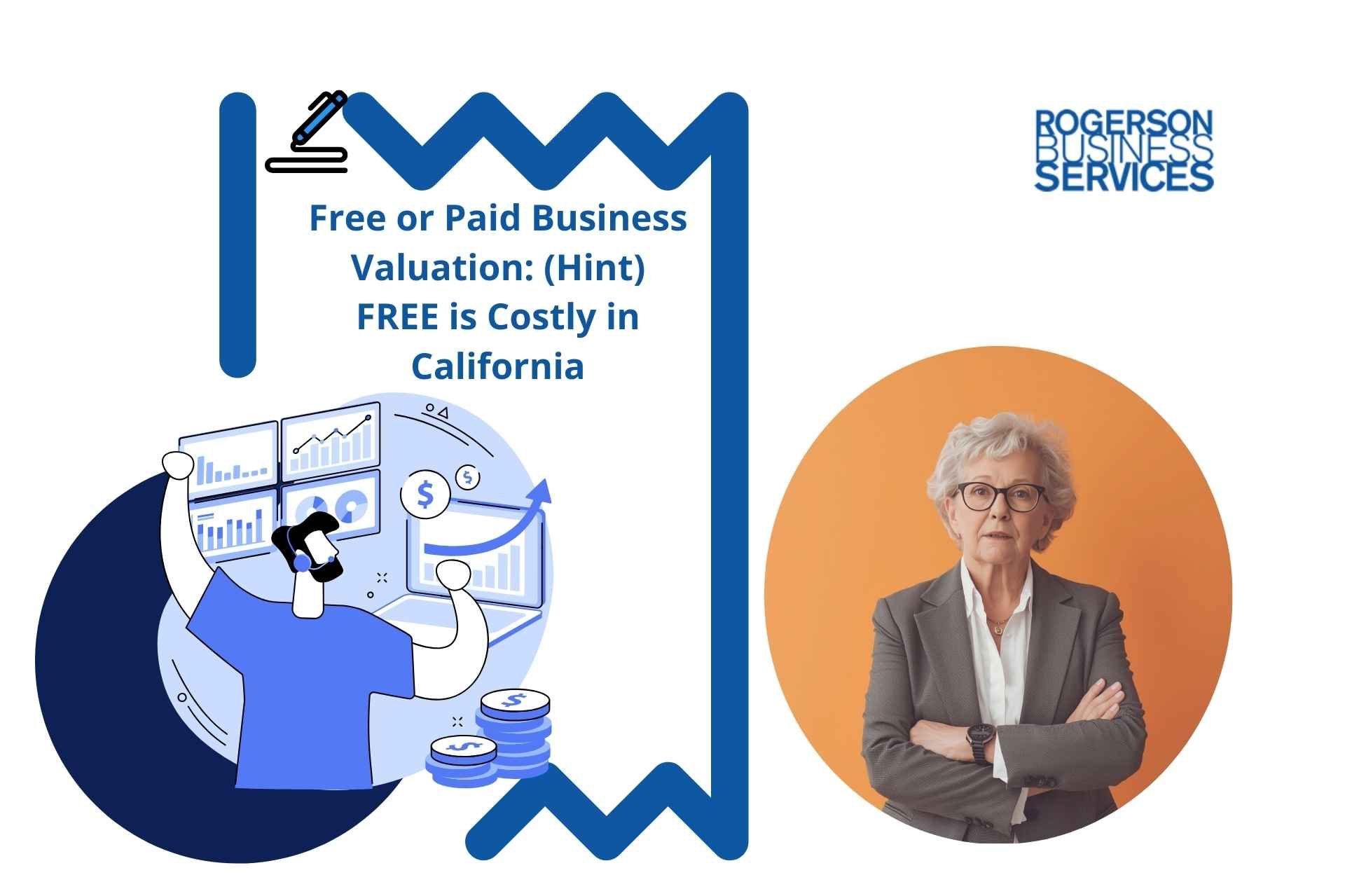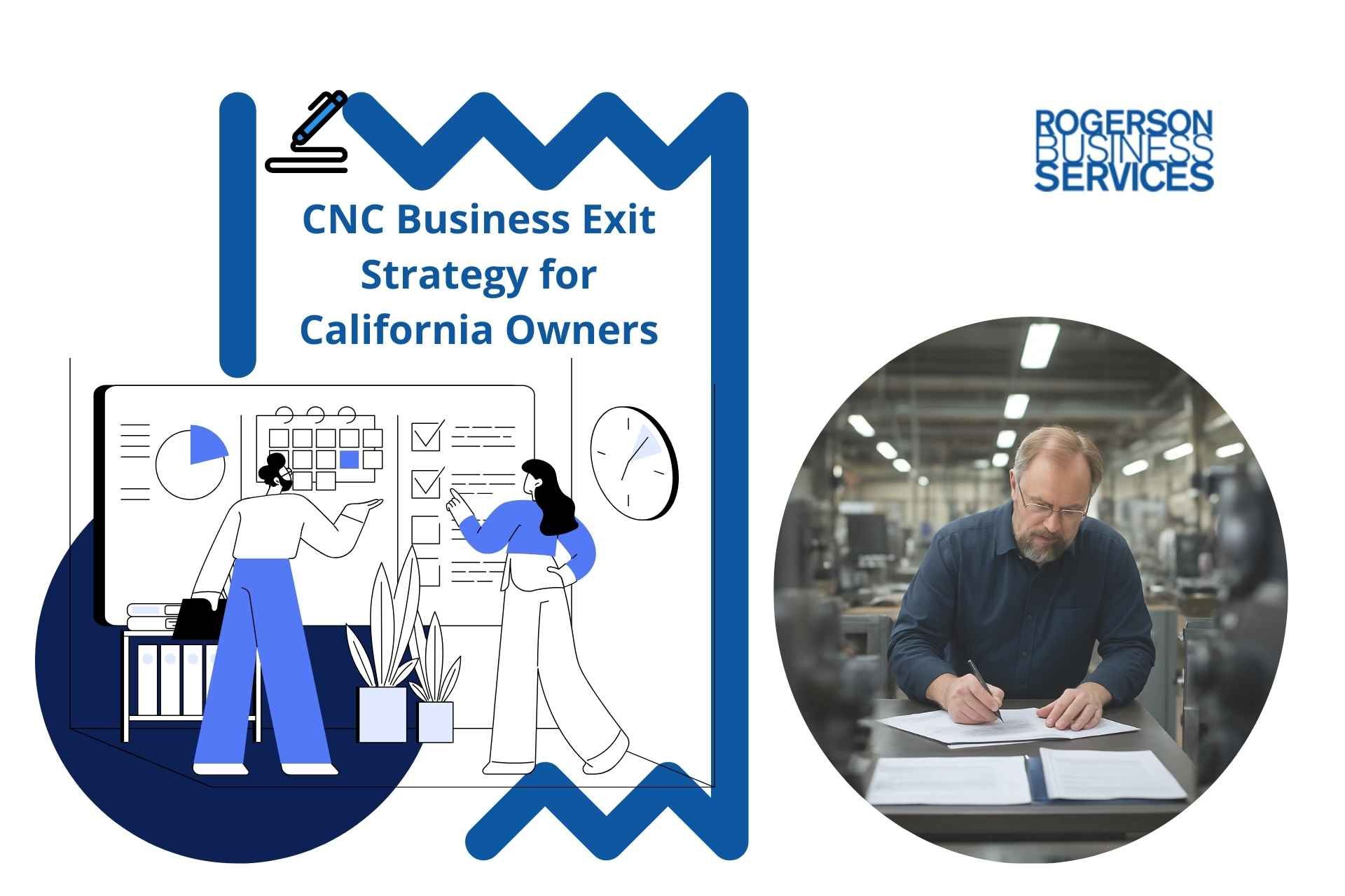The Ultimate Guide to Help Exit a Packaging Company
Considering an exit strategy from your lower middle-market packaging company in California can be overwhelming. Without a proper, well prepared, exit plan, and an intermediary or professional business M&A Advisor to facilitate the process, there is no way to guarantee that you made the right decision.
Get The Guide
M&A Guide
Increase Your Chance Of Success!
Guide to Help Exit a Packaging Company
Everything you need, all in this business exit strategy simple guide
Exit Strategy for a Packaging Company
Sooner or later, every business will change hands. Whether you experience a life-changing event like an accident or you’re just ready to retire, having a business owner exit strategy means you’re prepared to get the most out of the change in your life.
Here are the things you should know about business exit strategy planning for selling a packaging company, as well as other details that can affect your sale.

Top Reasons to Consider an Exit Strategy
Exit strategies offer numerous benefits to companies. Let’s look at the most common reasons that people make them, even if they aren’t planning to sell yet.
Better Financial Prospects
When thinking about a business exit strategy, just having the strategy can improve your financial prospects. Investors like businesses that have a clear process for changing hands, and they may specifically look for such companies over businesses desperately trying to create an exit strategy framework from scratch.
Determining Tax Implications
If I sell my business, how much tax will I pay?
That’s one of the most common questions business owners ask, right after “how much can I sell my business for?” Preparing an exit strategy allows you to analyze current tax laws and develop several processes that could result in lower burdens for you and your company.
Learning about tax implications can also help you decide if it’s better to sell your business before or after proposed legislation goes into effect.
Handling Surprise Offers
Investors make offers for many reasons. In California, businesses may be looking to expand their customer base, reduce competition, or even acquire land to convert to other uses. Deciding how to prepare an exit strategy will give you a leg up in negotiations if you get a great time-sensitive offer.
Company Orientation
California businesses for sale have many statuses, but few are as prepared for sales as companies that have a specific objective they’ve been working toward. That could include things like a specific number of customers, reaching a revenue target, or anything that’s industry-specific.
Company orientation is also attractive to potential buyers because changing leadership is an excellent time to change goals. If the business has accomplished its primary goal and the employees know it, most of them will be more than happy to help with the new plan.
Improving Valuation Estimates
How much is my business worth, you ask? That depends on a huge variety of factors, including potential for growth, physical assets, intellectual property, existing contracts, and many other things that your M&A advisor can go over with you.
Simply gathering the documents needed to sell a business can improve valuation estimates by collecting the data used to make those estimates. The sooner you have this information, the easier it will be to sell when you’re finally ready to.
Incidentally, most business owners want to know how to value a business based on revenue, but potential buyers only consider that as one of many other factors.
Improving Transitions
One of the best parts of an M&A exit strategy is that it can smooth out the transition’s roughest spots. For example, if your company has several owners, creating an exit strategy now can bring people into agreement long before you’re ready to sell. Co-owners rarely disrupt processes they’ve already agreed to.
Timing Sales Well
The basic principle of investing is to buy low and sell high, which holds true with middle-market businesses for sale. If you sell when your packaging company is doing well, you can get a lot more money than you might if you sell when you’re going through a rough spot, and the new owner would have to do more work to get the business functioning again.
Dealing With Personal Issues
Personal issues like sudden health or family problems can impact mid-market businesses for sale. If your company has a plan in place for transitioning things, they can execute that while you’re focused on personal matters. This is extremely useful if you have a million-dollar business for sale, where the value involved means you don’t want to give anything less than your best.
Having Multiple Options
Middle-market M&A Brokers can help you create several options for selling your company. This means all you have to do is pick and choose which of those options you want to use when the time is right.
As experienced business owners know, sometimes the markets throw a curveball that nobody could reasonably see coming. Preparing plans for different situations makes it easier to sell a business no matter what else is happening.
As part of this, you may want to consider
what legal structure is best for your business. Changing structures before you put your business up for sale can facilitate a smooth transition and even raise your company’s value.
How to Sell a Business - Packaging Companies
When you’re deciding how to sell a business, there are a number of questions to consider.
- Does the sale make economic sense? That is, do you benefit more by selling the company, or should you keep holding on to it for now? In general, is the intrinsic value of all future dividends or distributions, net of taxes, greater than the price after paying taxes and advisors for selling?
- What will you do with the proceeds of the sale? Similarly, what will be the rate of return for those proceeds? Determining how to calculate the value of a business for sale is important, but not having any plan for what to do with that money is missing the forest for the trees.
- Are all owners onboard about selling the packaging company? This is relevant only if the business has several owners. All owners have a rightful stake in the outcome, so even if you say, “I want to sell my business,” it’s important to talk to the other owners.
Types of Packaging Companies
There are several types of packaging companies in California, and which type(s) your business falls under can affect the sales.
Packaging Manufacturer
Packaging manufacturers focus on creating one or more types of packaging for customers. Some make stock packaging for distribution companies, while others make custom packaging to meet specific business needs.
Manufacturers often have existing long-term contracts that can prove extremely valuable when selling the company because they offer more-or-less guaranteed revenue for extended periods.
Prototype Companies
Prototype packaging companies produce in small volumes, sometimes making boxes entirely by hand. Some manufacturers provide this service, but specialist companies focus on making packages for presentations and creating plans that larger manufacturers can use.
Packaging Broker
Packaging brokers buy custom packaging from manufacturers and resell it to other customers. Many brokers help manage projects, handle money (similar to escrow services), process paperwork, hold inventory, schedule deliveries, and generally smooth things out for their customers.
Like manufacturers, brokers are valuable mainly for any existing contracts they have. If you want to improve your paper packaging business’s price, getting more long-term contracts can help immensely.
Packaging Distributor
Packaging distributors are similar to brokers but focus specifically on stock packaging instead of custom packages. Many work directly with a packaging supplier, or multiple suppliers, to maintain a steady flow of products where customers need them most.
Flexible packaging companies for sale may have warehouses throughout the country, so other states’ laws could apply to the sale. That makes it even more critical to hire a packaging industry M&A expert to sell your lower middle-market companies.
Packaging Design Firm
Packaging design firms are graphical companies that focus on creating packages to help fulfill marketing objectives. This may include in-house branding or visual design services. Most design firms don’t produce packaging on their own, but larger companies may offer this as an additional service.
Fulfillment
Sometimes known as co-packers, product packaging fulfillment companies focus on placing products into the packages and then delivering them. This can occur at many different points in a supply chain, from inside the manufacturing facility to distribution warehouses where the products ship from.
Regardless, these are popular packaging companies for sale because they tend to have existing contracts that help ensure they’re profitable for new owners.
Business Valuation
What is it? Why do I need one if I'm planning to exit a business? What is the business worth?
Steps to Sell a Business
If you are thinking about selling your packaging company, keep in mind the following steps.
Due Diligence
Whether you’re trying to decide how to sell your business to a competitor or how to sell a business privately, following the due diligence checklist for selling a business is essential to a successful sale. We’ll talk more about the list itself below, but preparing to do this is a job all by itself. Here are the things to consider.
- Does the business have all key documents about its operation readily accessible? Potential buyers will want to see things, and having them on-hand is important for valuations. If you don’t have all of the documents, you’ll have far more trouble with any M&A strategy.
- Does the business have a good data system in place? In this context, a good data system is one that can produce financial statements, payroll registers, invoicing information, customer lists, and other relevant data on-demand.
- What are the key add-backs and adjustments to the income statement? More specifically, how do they apply to calculating your EBITDA?
- What are the tax consequences of the sale under different price scenarios? Knowing who will pay taxes and how much is another critical consideration that all lower middle-market companies for sale need to consider.
Business Valuation - What’s It Worth?
This is the big question that people ask middle-market M&A Advisors. Many decisions depend on the value of your packing business for sale, including things you can do to raise or lower the price ahead of the sale. Here are some of the key factors that can affect any business for sale in California be it Southern California, the Central Valley or Northern California.
Historical Performance
Buyers want to know how your company has performed for at least the last 3-5 years, but showcasing a longer trend is acceptable if business has been good. Lower middle-market M&A Brokers can help you determine the best way to present this performance data.
In general, the best trend is anything where revenue is going up. The historical performance to avoid is the revenue going down while expenses are going up. However, even though that’s the worst-case performance, buyers may still accept things if you can explain newer costs and how they’ll lead to long-term profitability.
Growth Potential
This includes things that can affect your future revenue, including key trends throughout the industry and where you project your revenues and profits. New owners may also want to know if you have any strategies you’re not doing that they could implement to increase business drastically.
Investors don’t always like putting
more
into a company than they already are, but buyers with deep pockets will certainly consider it if you can give them a good plan. That can even drive up the sale price.
Customer Base
The overall size of your customer base is another key factor in valuation. Broadly, a bigger base is fundamentally better for buyers. Even if some customers leave the company when you do, a bigger base means more people are likely to stick around.
Conversely, a business with only one client is hazardous. If that client stops buying, that’s 100% of the company’s income gone. If you’re asking, “how do I sell my business for more money?” getting more customers is a great start.
This is important even if you’re deciding how to sell a business quickly. Getting more customers does good things in all methods of business valuation, and regardless of packaging industry trends.
Dependence on Top Clients
This is related to the customer base but focuses specifically on how revenue comes in from different sources. If you have 1000 customers, but the majority of your income is from 2 of them, that’s far riskier to new buyers. On the other hand, if no customer drastically stands out from the others, buyers won’t be as worried about losing them.
Dependence on Owner
How much does the business depend on you for its day-to-day operations? This mainly affects the transition period because buyers will either take over or hire someone to manage the business for them. Lower middle-market M&A brokers can help you determine if your business is too reliant on you, and if so, how you can change that.
Learn how to plan an exit for your packaging company
Sell-Side M&A
Four step process to market your California lower middle market business for sale
01 Exit Plan - business valuation
Your potential buyers can come from many areas. Employees, individual and group investors, Private Equity Groups, and even competitors who may have an interest in purchasing your business. If a competitor is interested, you don't want to reveal too much information about your business, especially anything that could hurt your business if the deal falls through.
Once you decide to sell, get your business ready, and get help from a trusted and accredited California M&A Advisor.
An M&A Advisor will vet potential buyers to make sure they are qualified and are serious about purchasing your business.
A California Licensed M&A Advisor knows the ins and outs of selling a California business and can help you get your business in shape to get you the best deal.
02 Buyer Analysis
One of the first things your M&A Advisor will do, is help you to create an exit plan. An M&A Advisor knows exactly how to plan an M&A exit strategy. In fact, you might get a M&A Advisor to help you with an exit plan long before you're ready to sell your California company.
An M&A Advisor is knowledgeable about how to calculate the value of a business to sell and will aim to get the highest value for your business. Once everything is ready to go, they'll list your business for sale. An M&A Advisor will be an expert at listing a California businesses for sale.
After your business is listed, the M&A Advisor will handle all the marketing of your business to promote deal origination and get you in front of potential buyers. They'll also set a buyer list and work with you to figure out who to go after for the best value.
03 Deal Origination - marketing
An M&A Advisor will then work to get you as many qualified and motivated buyers of your business as possible.
They will market your business through the proper channels, including social selling and targeting and generating interest. They'll vet and follow up with interested buyers whether off-market or publicly listed.
Once the offers come in, your M&A Advisor will evaluate all offers and conduct market offer analysis to make sure you're getting the best deal.
04 Negotiation & Closing
Buyer Due Diligence
Once a buyer is performing their own due diligence, the M&A Advisor will help you navigate the process to make sure everything is running smoothly. They'll negotiate a Letter Of Intent between you and the buyer to lay out the proposed aspects of the deal. Your M&A Advisor will also help you gather all of the necessary paperwork discussed above. If the buyer asks for additional documentation, your M&A Advisor can help guide you.
As a buyer is going through the due diligence process, they will be on the lookout for red flags about your business. An experienced M&A Advisor is knowledgeable about these warning signs and can help you prevent them. Red flags may include refusing to disclose why you're selling, not allowing time to conduct due diligence, refusal to introduce the buyer to employees, suppliers, landlords, and more.
Definitive Purchase Agreement
The M&A Advisor will oversee the Definitive Purchase Agreement with the help of the transaction attorneys to make sure both parties are happy with the terms. A Definitive Purchase Agreement protects both you and the buyer as it will clearly state exactly what is and is not being sold. It can also protect the buyer from certain liabilities. A Definitive Purchase Agreement will also help you deal with the legal complexities of selling a California lower middle market business.
Once the Definitive Purchase Agreement is finalized, the M&A Advisor will help with any final items that need to be done as part of the closing process including working with a California Licensed Escrow company.
Closing - Finalize the Transaction and Close the Deal
Finally, your M&A Advisor will help prepare the close of your transaction. Once the closing is complete, they'll assist with overseeing the transition of the business change of ownership.

What Is the Role of M&A Brokers in Selling a Packaging Company?
Lower middle-market mergers and acquisitions brokers can help you through all stages of selling a packaging company.
Buyer Analysis - Qualifying Potential Buyers
One of the most critical jobs of lower middle-market M&A brokers is figuring out which buyers are worth talking to. Different buyers will value packaging companies for sale in different ways, which in turn influences their offers.
For example, if you want to have a competitor acquire your company, which competitors would benefit the most by absorbing your assets? A huge distributor might barely notice the addition and therefore value you poorly, while a company of similar size could double or triple their customer base in one fell swoop.
Similarly, you could have assets besides your business that are worth looking into. Lower middle-market private equity firms could be looking for choice land in California, and they might be willing to pay an incredible premium to get it.
Take a look at some of the best potential buyers of mid-market companies for sale.
Competitors
Competitors are, in many ways, an ideal buyer. They have existing knowledge of the industry and gain direct benefits by absorbing your business. If you’re saying, “I want to sell my business, where do I start?” it’s rarely a bad choice to start with your competitors.
Keep in mind that competitors are usually the
worst
people to divulge sensitive information to, especially if the deal falls through. They’ll still expect you to follow the M&A financial due diligence checklist, but your broker can help you decide what information you can share safely.
Employees
Selling to employees is a great option if you have people who love the business and want to keep running it more-or-less the same as it’s always been. Employees are also a good choice if nobody else is particularly interested in the business.
This tends to work out well for long-term success because existing employees are the ones who know the company best. They’re also the least likely to install new leaders who might mismanage the company into the ground. All of this makes them a popular choice for people asking things like, “how do I sell my business privately?”.
Individual Investors
Individual investors outside your company are usually looking for stable long-term profits, which is good if you have a cardboard box manufacturing company with plenty of contracts to guarantee revenue.
However, some individuals have far more money to invest than others, which is where buyer analysis comes into play. M&A business brokers can help determine whether or not an individual is worth considering as a potential buyer.
Private Equity Groups
Private equity groups are similar to individual investors in that they’re usually looking for a business bill of sale that includes long-term growth or at least steady revenue. However, some of them just want your land as part of a broader deal they’re doing.
The key thing to know about private equity groups when deciding things like “how to sell my business” is that private equity groups tend to have
extremely
deep pockets. If you can attract them, they can often outbid any other companies.
You can even use this strategically to try and get a higher price than your packaging
manufacturing business for sale would typically go for.
Family Offices
Family offices are a rare choice for buyers when you’re a packaging distributor for sale, but they might be interested in your land. In rarer cases, family offices might be interested in buying small, specialist packaging distribution companies for boxing and selling other products. Your M&A brokers can help you determine if this is a viable course.
Strategic/Corporate Investors
Corporate investors are similar to private equity groups but usually want to bring in a fulfillment company for sale that can meet their specific needs. Sometimes it’s more affordable to produce everything in-house, so if you can make many types of packaging, there are some definite opportunities here.
M&A trends can affect growth through mergers and acquisitions, so brokers can keep an eye on the market and help you determine if it’s a good time to sell your business.
What M&A Brokers Can Manage
M&A brokers can, and often should, manage the following parts of your buying and selling a business checklist.
Exit Plan
The exit plan is all about determining the best path to take to sell a business. An excellent plan includes options for selling at different speeds and under different conditions. For example, it may be easier to put a pack-and-ship business for sale just after negotiating some new contracts.
It’s best to start making an exit plan as early as possible, even if you’re not currently planning to sell your business. Having an exit plan ready means you can start the process of selling much faster when you’re finally ready to sell, and as we explained above, it can even support your business by providing a concrete goal for people to work toward.
Execute the Listing
Listing a company for sale is about putting it up in the places where qualified and motivated buyers will actually notice it. Even if you figure out how to value your business in record time, that won’t help if potential buyers never realize your business is for sale in the first place. M&A Advisors can execute listings, so they have the best chance of being seen.
You might be able to sell your business online, especially in this day and age. Keep in mind that while it is possible to sell a business online, most buyers will want to meet you in person at least once. However, the right buyer will want constant meetings over many months to make sure your business is the right fit for them.
Business Valuation
If you want to participate in growth through acquisition, getting a high business valuation is essential to your success. Your M&A broker can help you find and value all of your assets, including some you may not have realized you have.
One of the less-mentioned parts of business valuation is performing a
competitive analysis. If you have solid growth and minimal competition, that’s far more attractive than being in a highly competitive area. Brokers can help you determine who your competition is and how that may affect your valuation.
Marketing
M&A Brokers can also help with all aspects of marketing deal origination, which includes multiple steps to find trustworthy and reliable financial partners. Proper marketing may help provide better terms for financing options, and buyers always like that.
Buyer List
A buyer list is a short collection of buyers that have expressed interest in your packaging company for sale. M&A Intermediaries can analyze everyone on the list to help determine which of them is likely to offer the best value for your company.
Keep in mind that the total offer isn’t the only factor to keep in mind. Buyers who pull out of transactions often may be a poor choice even if they are offering a higher price. Meanwhile, highly reliable buyers could bring something else to the table.
Deal Origination
Deal origination is an essential aspect of processing high-value business transactions. M&A brokers can help market potential deals to find companies that are willing to process the trades. Having deal origination ready for a buyer is extremely useful because it helps convince them that you’re serious about selling and committed to making an easy transition.
Outreach Program
Outreach programs focus on reaching out to vetted buyers and generating interest in the deal.
Whether you have a food packaging business for sale, a corrugated box business for sale, or even a toilet paper business for sale, outreach from your M&A broker can help contact buyers that aren’t currently looking for an investment opportunity but can change their minds if something good comes up.
Distributing Content
Similarly, distributing content about your business can help with social selling and targeting specific people or companies. Generating buzz about a paper distribution business for sale (or, during emergency such as a wildfire or weather event or even during the COVID-19 and distributing, for example, Personal Protective Equipment or PPE) is a great way to help improve its valuation.
M&A Brokers often specialize in specific industries, which provides the experience needed to succeed at distributing content correctly.
Evaluation
Evaluation is the step where your broker can help you evaluate all offers and conduct an analysis on each market offer to determine whether or not it’s worth accepting. This is usually a time-sensitive process because investors don’t want to wait too long to find out if they should keep paying attention to you, so expert help goes a long way.
Negotiation
The negotiation step can take anywhere from days to years. Even if you’re asking questions like “how do I sell my business privately?” negotiation will come up sooner or later. This is when due diligence comes into play, and your broker can help ensure you have all the information you need ready to deliver.
Letter of Intent (LOI)
A letter of intent is a non-binding agreement that establishes the overall aspects of the deal and negotiations. This is what helps a deal move forward and is essentially the right time for a buyer to pull out if they’re not serious about the deal.
Free Business Valuation Guide
Learn more about business valuation and why it matters the most while planning an M&A exit strategy.
Due Diligence
Here’s what buyers are looking for when they come to negotiations with you:
- Income Statements: These should stretch as far back as possible, preferably at least five years.
- Records of Accounts Receivable and Payable: Buyers always want to know what you owe and who owes you before they buy.
- Balance Sheets and Tax Returns: These go hand-in-hand with the income statements and should include business activity statements for at least the last 3-5 years.
- Profit and Loss Records: Keep in mind that these are different from balance sheets. Aim for at least three years of these here.
- Cash Deposit and Payment Records: These help show that money the business earns goes into the business. Make sure the records are reconciled with the accounts.
- Utility Accounts: These are easy enough to get. Buyers mostly want to know that you aren’t having any trouble with utilities.
- Bank Loans and Lines or Letters of Credit: These aren’t relevant for all businesses, but having a line of credit available, even if you’re not using it, can be a point in your favor.
- Minutes of Directors’ Meetings/Management Meetings: Buyers want to look back at previous management decisions, so have as many of these as possible.
- Audit Work Paper Files: You only need to provide these if they’re available.
- Your claims about your business: This is a little different from most aspects of due diligence. Essentially, buyers want a written record of your specific claims, such as your reason for selling or your statements about the company’s reputation.
- Privacy Details: While you don’t want to disclose all of this to your competitors unless they have to, buyers do want to know things like your number of employees, who your trading partners are, and what type of people your customers are.
- Stock: This is only relevant if you offer stock in the company. Many smaller businesses don’t.
- Details about the Plant, Equipment, Fixtures, and Vehicles: This should include the makes and models of your equipment, as well as information on things like repairs and warranties. Buyers also want to know whether they’re in good working order and if you have any relevant licenses.
- Intellectual Assets of the Business: Intellectual assets include things like patents, trademarks, and other intellectual property that can set your business apart from competitors.
- Existing Contracts with Clients/Staff: This covers everything from employment contracts to short-term and long-term deals with customers.
- Partnership Agreements: If your company has partners, either among owners or with other companies, buyers want to know that.
- Lease Arrangements: If you lease any property, expect buyers to ask how long the lease is good for, whether they can expect to renew it, and so on.
- Details of the business’s Automated Financial Systems: You don’t need to provide passwords yet, but buyers will want to know how easy it will be to start managing the finances once they take over.
- Details of Credit and Historical Searches related to the business: These include things like your credit over time and how much interest people show in your company.
- Value of the Business: We discussed business valuation earlier, but buyers will want to know how you value each part of the business so they can check whether the asking price is fair.
Buyers may also look for company-specific things outside of the information listed above. Don’t be afraid to ask potential buyers if there’s anything else they want to know about your company as you go into negotiations. It can be hard to predict everything they’ll want, so asking them directly can solve a lot of issues before they happen.
Warning Signs for Buyers
When you want to buy or sell a business, these are the biggest warning signs that can turn buyers off and spoil an otherwise good deal.
Not Disclosing Important Information
In this context, important information includes things like your reason for selling, your financial statements, any licenses and permits, and staff contracts. Essentially, it’s suspicious if you hide these types of things.
For example, if buying your company obligates buyers to uphold long-term contracts, they definitely want to know about that long before they start.
Won’t Agree to a Trial Period or Due Diligence
Most buyers want to have at least 30 days to conduct their due diligence and research you. If you insist on selling too fast, they’ll think you’re hiding something. Similarly, trial periods can help them determine if they’re a good fit as an owner.
Trial periods aren’t as necessary if you want to sell a business contract to someone who only wants the land and plans to close the business itself, but expect them to ask for at least a month for due diligence no matter what.
Not Introducing Them to Important People
Important people include individuals like suppliers, landlords, or real estate agents. These are people who aren’t part of the company but have an existing relationship. Incidentally, these people can also support you when you’re trying to find a buyer. Having good relationships with your partners can directly support your valuation.
Being Involved in Legal Proceedings
More specifically, this is an issue if you’re involved in too many legal proceedings. Larger companies often wind up getting involved in lawsuits sooner or later, but it’s best to resolve all proceedings before trying to sell the company.
You Are Too Focused on Closing Quickly
Even if you need the money quickly, trying to sell the business too fast usually makes buyers want to slow down.
Negotiations
Negotiations are one of the most complicated parts of selling your business, so it’s best to have experienced negotiators on your side. This is too complex to cover here, but we have some other guides that can help you through this process.
Negotiating the Definitive Purchase Agreement
Offering middle-market businesses for sale involves several steps. The
M&A Advisor works closely with you and your
legal advisor, especially while negotiating and finalizing the
Definitive Purchase Agreement. This Definitive Purchase Agreement helps both parties reach their goals for the transaction and allows no room for error as it completely represents the legal wishes of each party.
A good M&A Definitive Agreement is the lynchpin of a good transaction. Both seller and buyer exchange a large amount of information from different sources. This is often over many months of conversations. These exchanges are then condensed, with their individual interests, as best as possible into the Purchase Agreement.
Items a typical Definitive Purchase Agreement may include:
- Treatment of Shares, Options, and any other Securities; if appropriate to the transaction
- Representations and Warranties
- Covenants
- Solicitation (“No Shop” clause)
- Financing
- Termination Fee (or “Break-Up Fee”)
- Indemnification
- Material Adverse Change (MAC) and Material Adverse Effect (MAE) Clauses
- Closing Conditions
The Definitive Purchase Agreement can have potential pitfalls, so your M&A Advisor needs to keep the communication open with the Buyer and their Deal Team as well as the Seller and their Deal Team.
The M&A Definitive Purchase Agreement also needs to include details about tax obligations and consequences, especially if shareholders are involved.
Avoiding Pitfalls if you have a Buy-Sell Agreement
What if the seller is two or more individuals?
Many businesses have multiple owners or shareholders. Getting an agreement from a majority of the shareholders about selling the business and being willing to accept an offer can be challenging. One of the shareholders may not have any interest in selling the business at all or may want something specific most buyers will not be willing to agree. If this is the case, hopefully there is a Buy-Sell Agreement in place as this will outline what each shareholder needs to do. A few years previously I had a transaction with 9 shareholders. One shareholder with a minority interest initially refused to sell. Eventually they changed their mind but it was stressful while this played out.
If no Buy-Sell Agreement is in place and there is tension between the owners and shareholders, the pressure to decide the future direction of the business may be challenging. This article provides additional information for an owner or shareholder with
how to avoid buy-sell agreement pitfalls. To help their clients, M&A Advisors should understand the importance of assumption of liability, so their buyers and sellers know who is responsible for any lingering claims.
The agreement also needs to have information about indemnity clauses regarding operations. For Packaging Companies, concerns about environmental liability, breaches of warranties, and other issues need to be factored into the indemnity clauses of a Definitive Purchase Agreement.
Buy-sell agreements can be confusing, so it is helpful to learn
how to understand buy-sell agreements
and
how a buy-sell agreement can save a business.
Buy-Sell Agreement Benefits
Buy-sell agreements are useful for starting new businesses, bringing in partners, and even determining insurable risks. Essentially, they are useful for all businesses that have at least two owners, regardless of whether those owners are humans, corporations, or something more esoteric.
These agreements are also useful if you want to bring in a new co-owner without giving up all of your ownership in the company.
The Legal Intricacies of Buying and Selling a Business in California
Like most areas, California has some unique regulations to keep in mind when you’re trying to sell a business. Understanding these is essential to closing a deal correctly. Doing things wrong could cost you a lot of time or, worse, money.
Need help with planning your exit strategy?
Rogerson Business Services (RBS) is an M&A Advisory for low middle market businesses that is built on trust and ethics. Andrew Rogerson, Certified M&A Advisor, can help you find answers to all your questions, introduce you to better opportunities, and manage the buying and selling a packaging company in California process's integrity while keeping every aspect of sales confidential.

The Steps in Negotiations
Negotiations have five primary steps that brokers can help you through. Absorbing a company can have many problems like poor matchmaking, miscalculations during the transition, and conflict between management and workers, but good negotiations can iron out most of these problems before they occur.
Negotiate the Terms
Negotiating the terms of a sale requires finding a compromise that both the buyer and seller like. While it’s tempting to try and squeeze out as much money as you can, coming across as too greedy can make potential buyers bow out. M&A brokers can help you get the most for your company without going overboard.
Finalize the Contract
Finalizing the contract helps ensure that everyone is in agreement and that the deal is exactly as everyone expects it to be. Nobody wants to get further into selling the company, only to find out that they’re at a huge disadvantage due to some wording someone snuck into the contract.
Closing
Closing is the process of finalizing the business transaction and solidifying the deal. This is the point of no return for most sales. In most cases, closing goes through an escrow company that can help ensure everything happened as it’s supposed to.
Things tend to start moving quickly once you close, so expect to spend several days and quite a lot of phone calls or emails finalizing things. The more you prepare for this process, the easier it gets, so your M&A brokers can help you rehearse this process to achieve the best results.
Facilitate the Business Transition
Facilitating the business transition comes after closing, and the details of it are usually part of the terms you negotiated. This generally includes things like giving keys and passwords to the new owner, introducing them to employees, and otherwise helping the new owner move into their role.
For more information on this, see our
Business Transition Checklist. Even if you aren’t ready to sell, knowing what’s expected as part of the transition can help you prepare for it.
Finalize to Achieve a Smooth Transition
Finalizing other details of the transaction can help ensure the smoothest possible transition. New owners usually appreciate this and may even require it as part of the sale agreement. For example, the new owner may ask you to help them for a few days, weeks, or even months as they settle in.
Mistakes to Avoid
Common mistakes in selling a packaging company in California include issues like having a company that’s disproportionately dependent on one thing (one employee, one supplier, one customer, etc.), no cash flow, and no growth strategy. M&A brokers can help you identify mistakes like these and resolve them before you get ready to sell.
M&A LOWER MIDDLE MARKET ADVISORY
Why Work With Rogerson Business Services?
Business Valuation
Many sellers neglect the business valuation and methodology early in the process, only to become frustrated after the deal has been finalized. Rogerson Business Services can help you understand the value of your business based on different methodologies.
Legal Due Diligence
When selling a business, the legal standing of the business determines the smoothness, efficiency, and speed at which the transaction is finalized. M&A Advisors offer a sell-side M&A process backed by the viability of a California Licensed business or transaction attorney. With a licensed California M&A Advisor, you can be certain the legal documents involved in the sell-side M&A process is detailed and accurate.
Business Analysis
To avoid wasting time with unqualified buyers, get help from a trusted, licensed, and accredited California M&A Advisor. An M&A Advisor will vet potential buyers to make sure they're legitimate and are serious about purchasing your business. An M&A Advisor knows the ins and outs of selling a lower middle market business and can also help you get your business in shape to get you the best deal.
Financial Due Diligence
Our service includes deal team professionals to assist you. From financial to legal documents to tax and procedures, we want to make sure you are covered.
If you have your own in-house team of advisors, Rogerson Business Services can help make the M&A sell-side process as easy as possible by offering insights that help the team understand and are in alignment with the same goals as yours.
Definitive Purchase Agreement
The Definitive Purchase Agreement is usually extremely complex. It is easy to overlook all the terms and legal jargon, but every paragraph is important and duly considered. It is therefore critical to ask questions and ensure you are comfortable with the final set of legal documents you need to sign.
M&A Sell-Side Targeting
Rogerson Business Services provide Mergers & Acquisition M&A Sell-Side Advisory. We zero target off-market, accretive, private equity and strategic buyers with an interest in lower to middle market companies or businesses to maximize incremental growth value.
What Are Some of the Problems in Growth Through Acquisition?
Problems in growth through acquisition can include things like existing clients hesitating to recommit to their orders or new hires being apprehensive about sudden, huge changes in the business.
M&A brokers can help smooth this process out by giving people the right communications at the right times. For example, you can go down in successive levels of the company to bring people on board with the idea, or you can send personal messages to major customers to let them know what’s happening and soothe most of their concerns.
This is particularly useful if you can do things like address specific needs or pain points that customers have. For example, if you say, “I know X is important to you, so I’ve talked with the new owner and written a handbook for them to address those issues for you,” customers may actually be more enthusiastic about the company than they were before.
Mitigating Risks In Management
One of the biggest potential pitfalls in selling a company is bringing in new management that clashes with existing workers.
Current employees usually have ways they prefer doing things, so the sudden appearance of profit-minded investors who want to change everything up can have a huge impact on daily operations and even long-term profitability. Furthermore, new managers could take their income and invest it outside of the company or even in competitors.
An astute analysis of risk factors and well-made agreements can mitigate problems like these and help ensure the company takes a course you like even after you sell it.
Conclusion
As you can see, there are many factors to consider when you’re trying to sell a packaging company. M&A brokers that work for you can help you navigate the biggest pitfalls, get the highest valuation, and even help you complete deals faster.
Need help planning your business exit?
Rogerson Business Services (RBS) is an M&A Advisory for lower middle market businesses that is built on trust and ethics. Andrew Rogerson, Certified M&A Advisor, can help you find answers to all your questions, introduce you to better opportunities, and manage the buying and selling a packaging company in California process's integrity while keeping every aspect of sales confidential.
FAQ's
Sell-Side M&A
Sell a Business
Business Valuation
Ten Reasons to Plan a Business Exit Strategy with
Rogerson Business Services
1. Ethics
Rogerson Business Services are members of the M&A Source, International Business Brokers Association (IBBA) and California Association of Business Brokers (CABB) and adhere to their code of ethics.
2. Confidentiality
Rogerson Business Services assists you professionally in a highly confidential manner to protect your personal and financial details.
3. Vetted businesses for sale
Rogerson Business Services have access to an inventory of businesses including unlisted businesses for sale in California.
4. Facilitator
Rogerson Business Services are specialists in business transitions and understand the need to respect all parties in the transaction. There are many steps to value, sell and buy a business. Rogerson Business Services have successfully navigated these steps many, many times.
5. Valuation
Rogerson Business Services can provide you an opinion of value of a business you wish to sell or buy.
6. Due diligence and escrow
Rogerson Business Services has the knowledge to work through leases, franchise agreements, finance requirements, licensing, California escrow requirement and many other items so the sale of a business is successful.
7. Negotiation
Rogerson Business Services practice win/win negotiation skills. Negotiations are rarely perfect and so a win/win approach is the best way forward.
8. Financing and funding
Rogerson Business Services has professional lenders that can assist with finance to successfully buy a business.
9. Resource
Rogerson Business Services is an active member in the associations of the M&A and Business Broker industry including M&A Source, the International Business Brokers Association (IBBA), California Association of Business Brokers (CABB), International Society of Business Appraisers (ISBA) as well as other professional organizations.
10. Closing and transfer
Rogerson Business Services works with you each step of the way. This includes managing the buying or selling of your business through initial negotiations, due diligence, escrow and the all-important closing.
We built this amazing step-by-step-guide to help "Exit a Packaging Company" - it is yours (free)
Rogerson Business Services provide Mergers & Acquisition M&A Sell-Side Advisory. We zero target off-market, accretive, private equity and strategic byers in lower middle market companies or businesses to maximize incremental growth value.






